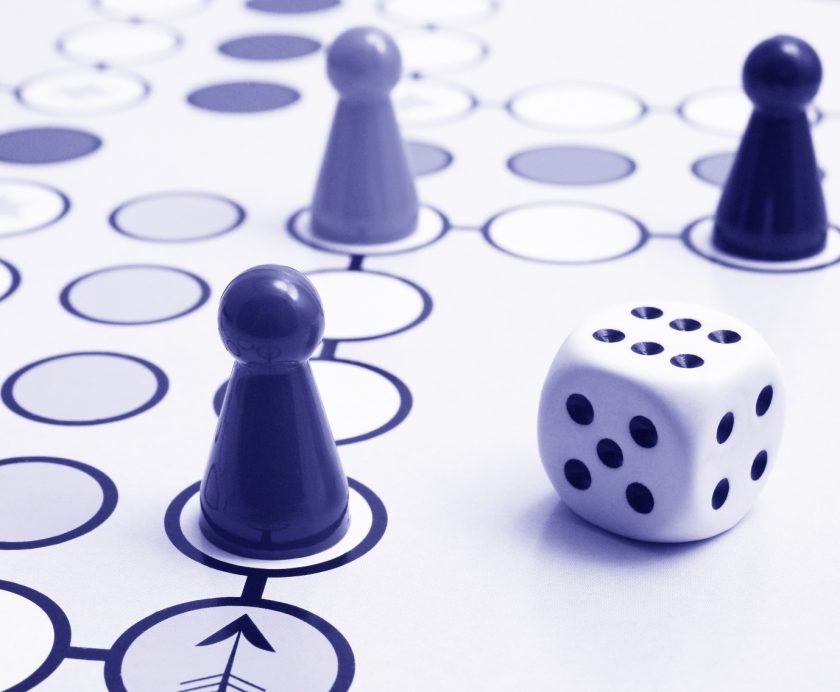
LEGAL UPDATE – GAMES OF SKILL
Is it a skill to know what is or is not a ‘game of chance’?
By Donald Bourgeois, Barrister & Solicitor, Canada
Regulators are established by statutes or similar legislative tools to be responsible for regulating specific goods and services. Gaming regulators are no different than regulators in other sectors in having a mandate that is defined, in large part, by “definitions”.
An important definition for many gaming regulators is what is “gaming”? In Canada and a number of other jurisdictions, the common law and legislation will include within a regulator’s mandate “games of chance”. “Games of skill”, on the other hand, will not fall within the gaming regulator’s mandate.
This delineation, in theory makes sense. If the decision on who wins a darts game – and thus, the prize – is based on the skill of the contestants, absent cheating, why should the state be involved to regulate? Skill-based contests are a common form of entertainment in many communities and pose little risk of moral turpitude to society. The types of contests may be physical skills or mental skills, such as trivia contests.
These types of contests occur at fairs and similar social activities. They are also popular in bars and restaurants, which is another sector of the economy that is often regulated. The hospitality industry, including liquor licensees, is one that serves local communities and will turn to “contests” as another form of social activity for their customers. Nothing is necessarily wrong with such contests – until, of course, they cross-over that line in the sand from “game of skill” to “game of chance”.
This issue becomes particularly poignant for regulators who regulate both “gaming” and “liquor”, which is not an unusual approach. Liquor licensees compete with others in the hospitality industry and sometimes turn to gaming activities to do so. In some cases, government policy allows this competition to occur, such as the placement of gaming machines in bars and restaurants. In other cases, it is not permitted, and the liquor laws prohibit the gambling activities on the licensed premises.
The issue arises from time-to-time. For example, when the National Hockey League had locked-out its players and hockey season did not occur in Canada, bars and restaurants were no longer able to offer the hockey game to watch while attending the bar or restaurant with friends. This lack of hockey resulted in Texas hold’em poker tournaments, which grew to be a significant activity for some bars and restaurants for a period of time – until regulators and law enforcement caused it to cease. And the new hockey season started.
More recently, a supplier of equipment that appeared to be electronic gaming equipment introduced the equipment to bars and restaurants. The supplier took the position that the equipment was not a “game of chance” but a “game of skill”. A recent Ontario Court of Appeal decision has concluded that it is, in law, a game of mixed chance and skill, which means that under Canada’s Criminal Code, it is a “game of chance”.
The Registrar of Alcohol, Gaming and Racing in Ontario, who regulates (as the name suggests) both liquor licensees and gaming facilities, raised concerns about the “GotSkill” game in liquor licensed premises. The supplier brought an application to the Ontario Superior Court of Justice for a ruling on whether the “GotSkill” game was one of “skill” or “mixed chance and skill”, arguing that it was a game of skill. If a game of mixed chance and skill, the liquor licence holder who permitted the equipment on the licensed premises would violate the terms and conditions of the liquor licence, i.e., permitting unlawful gambling.
The Superior Court of Justice considered the issue in Play for Fun Studios Inc. v. Ontario (Registrar of Alcohol, Gaming and Racing), [2018] O.J. No. 4578, 2018 ONSC 5190 (Ont.S.C.J.). The Court reviewed games that were played on a video terminal with a touchscreen that were found in bars and other licensed premises. The player is informed how much he or she may be able to win and then decides to place a wager. The player then participates in a skill-testing exercise that is dependent upon quickness of reflexes. The player is aware of the potential award for the immediate but not for subsequent plays, which are randomly selected. The Court agreed with the Registrar that the case must be considered from the player’s perspective, but that a player with enough skill could “beat” the machine and, thus, the test in R. v. Topechka, [1960] S.C.R. 898 (Supreme Court of Canada) for a game of skill was met.
The decision of the Superior Court of Justice was not expected. The case law in Canada on what is a “game of skill” versus a “game of chance or mixed chance and skill” is not extensive. Arguably, it is not extensive in part because the delineation was relatively clear.
The Ontario Court of Appeal overturned the decision of the Superior Court in its August 8, 2019 decision in Play for Fun Studios v. Ontario (Alcohol and Gaming Commission of Ontario), 2019 ONCA 648 (Ont.C.A.). It did so by relying on the previous case law on what is or is not a “game of skill”. The Court of Appeal quoted from the application judge’s reasoning to conclude that GotSkill was not a game of mixed chance and skill:
[A] player of GotSkill who continuously obtained 110% on the skill task would ultimately win more than she lost. While how much a player is able to win over the next few plays is a matter of chance, a very skilled player will always be able to come out ahead if she plays long enough. Put another way, the player who has enough skill can “beat” the machine, so the machine cannot “defeat the ability of the player to obtain favourable results”: Topechka, at p. 900.The Court of Appeal commented that “the chain of the application judge’s reasoning is correct until the last link” and proceeded to set out several findings that the application judge made that were also “correct” and which followed the common law, including decisions of the Supreme Court of Canada. The Court of Appeal then turned to the crux of the issue – the legal issue is not whether there was skill in the game, but whether the game is one of “mixed chance and skill”: any degree of chance that is part of the game, will suffice. The Court of Appeal concluded that the application judge had lost sight of this principle.
Canada’s criminal law does not have a “dominant element” test for determining what is or is not a game of mixed chance and skill. While not all “chance” is relevant – for example, “unpredictables” such as a gust of wind affecting the outcome of a tennis game would not be considered – an element of chance that is systematic is relevant. And the assessment is conducted from the perspective of the player who is an average and not a very skilled player.
It is expected that leave will be sought to appeal the Court of Appeal’s decision to the Supreme Court of Canada. In the meantime, though, liquor licensees cannot permit this equipment on the licensed premises – unless, of course, the licensed premises are also a casino or similar regulated premises for gaming purposes. Assuming that the Supreme Court of Canada does not agree to hear the appeal, the law on what is or is not a “game of chance or mixed chance and skill” would appear to be settled – or at least until the next NHL strike or lockout and liquor licensees are in search of other forms of entertainment that purport to be “games of skill”.
Donald Bourgeois
Barrister & Solicitor





